- Home
- Douglas Clegg
Isis Page 2
Isis Read online
Page 2
During the long stretches of summer, my mother felt better and seemed cured of her malady—at least for a handful of months. No boy rode a bicycle in with a package of laudanum, and no empty bottles of Dr. Witherspoon’s stood along the edge of her bedside table. We would go to London on weekend trips and stay at fine hotels and see plays or wander art museums and eat creamy cakes and tarts at tea. I expected to see our father on these trips, but he did not return from his war business, though we received telegrams and letters from him constantly.
On bright days, our mother would take us into the village. While my brothers wandered the streets, poking their heads in and out of shops and meeting the local boys and girls, I would go with my mother to her Ladies’ Club, where, in late July and August, the charity theatricals were organized, much to my delight. These mostly were for children, and they were required to be educational as well as entertaining, so my mother managed to steer the ladies toward Greek and Egyptian myth and drama, for she had played Medea and Persephone in her own youth and knew many of these dramas. The summer I was twelve, we did the Tragic Tale of Isis and Osiris, written by a Mrs. Wilfred Jasper of London. It was a mercifully brief series of skits with very little dialogue, as part of a local theatrical fundraiser for the Wayward Girls Sea Cottage that the nuns of Saint Pedrog’s ran.
My brother Harvey played Osiris, Spence played Set, and I was Isis. “I don’t understand,” Harvey said, when he read the play over. “Why does Isis keep having to do this?”
“What?” I asked. “She seems wonderful to me.”
“That’s because you’re playing her,” he said. “But if Osiris is dead, why doesn’t she just let him be?”
“Yes!” Spence laughed, clapping his hands. “Let him just be dead.”
I felt my face grow warm from a kind of sadness, for I took the play and my character of Isis very seriously. “Because she loves him. She doesn’t want him dead.”
“Rubbish. She’s just being obstinate,” Spence said, with a big smile on his face as if he were talking about me instead of Isis herself.
My mother played the goddess Nut, who also was the storyteller of the playlet. Others from the village and the local shops played parts in this and other short plays based on classical themes, and most of the village turned out for the event. The girl backstage painted my face so that I looked exotic and fairly wicked.
We didn’t have an Egyptian headdress, so, instead, a crown was made of tinfoil and paper. I felt as if I had turned into a woman when I put it on my head. As Isis, I might have been the star of the show, but Spence, as Set, hammed it up and got all the applause. The twins were sixteen at the time, and not terribly happy to be forced into the Ladies’ Club charity show, but once they saw pretty girls in the audience, they perked up.
Harvey, poor Osiris, didn’t like the part where he climbed into the trunk at the banquet. He told me before the play began that it scared him to be in such a small space, particularly with Spence shutting it up and laughing like a devil when he closed him in. During rehearsals, Harvey nearly shivered when he looked down at the trunk, and my mother had to pull him aside and speak softly to him in order to get him to lie down in it. “You’ll only be in it for a moment or two,” she told him. “It will remain unlocked. I promise I will make sure.”
He had glanced over at me and whispered, “Sometimes being scared is silly. I’m too old for it, aren’t I?”
And I called him “Silly” and told him that there was nothing to be afraid of in a box.
I had an idea to help him overcome his fear. I drew him close to me. I whispered in his ear, behind which his birthmark lurked, and told him, “Don’t be afraid. When you get in, close your eyes and count to ten. By the time you open them, you can get out of the box.”
He grinned, and messed up my hair with his hand. “Sometimes you’re smarter than me, and that’s when I worry.”
He kissed me at the edge of the lips, and I felt warmth on my face from that kiss through the whole play.
He played his part gamely and was given a standing ovation when Isis brought him back to life after Set had strewn pieces of him all along the Nile. The children who played the crocodiles were adorable, and they wagged their cornhusk tails to much hilarity.
My mother’s performance dazzled me. She had a stage presence like none of the other ladies of that group. I imagine now that she would have been a great actress if she had not met my father, for she seemed more alive on stage than she ever did beyond it. I saw her as more than merely my mother when she made her first appearance and gave a speech about King Ra refusing to allow her to have children. Wrapped in a winding sheet made to resemble a tunic, her heavy breasts nearly visible through the thin cloth, she looked as if she were a heroine stepped out of a Delacroix, an alternate “Liberty Leading Her People.”
My mother became the essence of summer for me, for that was when she was with us the most. We planted wisteria for me along the walkway and terraces, and more lavender for Harvey to use in his bath. He in turn helped Old Marsh and his son as they planted rows of new flowers and brought old bulbs back to life late in the season. Harvey would be covered in mud and dirt, and he’d wave to me as he followed the others into the Thunderbox Room, the water closet and sink area where the workmen washed up.
Harvey told me later that he preferred their company to Spence’s and “the other snobs’ at school.” The kitchen girl adored him and made him special treats and gifts of soaps and candles. I was nearly jealous of her as she tried to enchant Harvey and steal him from us. I asked him about her once, and he grinned as if he understood my fears. “Oh, she’s a nice girl, and works hard, but there’s a boy in the village who has been in love with her since they both were children. She’ll marry him and move above his shop someday, I think. But she is sweet, isn’t she?”
He always ended up with me, and we gardened and walked, and I taught him to paint landscapes out by the cliff’s edge. We planted our favorite flowers along the outer edge of the stone-hedged gardens, and more wisteria, and a funny little local flower called Sea-Star-Cross for Lewis, who, on his infrequent trips back from university for a few summer days, enjoyed the blue-white color of it. “And for Spence,” Harvey might joke as he dug a trowel into the earth for planting, spattering up some dirt at me, “A bit of dirt!”
Harvey and I began planting mint and that small herb called “sirus-hen,” with its fragrant and tangy odor, and we had a glorious summer or two. Mother cleaned out the dead brush of the garden and threw it over the cliff’s edge as if to banish it from our land. We all worked together with Old Marsh and Percy to bring back the sunken gardens along the low hillside until, finally, when the blossoms came and the sun overwhelmed the sky, I found reason enough to love the house and grounds.
3
Somewhere during those summers, I could block my grandfather’s stern and irrational lectures of God and the devil so that even on the stormiest days (for we had more of these than sunny ones) I explored Belerion Hall and the cliffside as if it were my own private doorway into wonderland itself.
Old Marsh had been trimming the overgrowth around the garden and saw my brother and me wandering toward the Tombs. He came out and sat with us for a bit, lighting his yellowed pipe, and told us about their legends. “Many bones are there. I seen ’em. In a pile, in stone coffins, some, but mostly just out in piles. Not a good place to play for a child like you, and you, Master Harvey, ought to know better.”
“Are you chastising me, sir?” Harvey said, a mischievous grin upon his face.
“I would not do such a thing, sir, but these places are old and rotted. Your grandmother meant to seal it up before . . . well, before she passed. But here it remains.”
“I’m too old to be frightened by such fairy tales,” I said. “I know about the Maiden of Sorrow and her lover.”
“Have you heard about the boy who brought back the dead warriors?” Old Marsh puffed on his pipe, and I could nearly see a little boy in the smoke that c
ame from it.
I smiled at him. “A boy did that?”
“Back in those times when the Villiers were dukes and duchesses. See those rocks?”
“The Tin Men,” I said, knowing this legend.
“When the enemies came, sometimes they got past ’em. Sometimes they killed everyone here. But one boy lived. He put the bones inside the Tombs here and he decided to pray to the old gods of the heathens so that magic could happen. He went first to the Laughing Maiden and called up spirits, and then in the Tombs, to bring the bones to life. And he raised warriors from the times of the Romans, and they came out—all made of bones and dirt. But they raised their swords and spears and they defeated the invaders. And that boy. That boy . . .”
“Summoned them?” I asked. “How?”
“Oh, I shouldn’t tell you, miss. Summoning’s a terrible business. Ancient words and spells, terrible things,” Old Marsh said, his hacking cough taking him over for a moment and making me think he might fall over from the force of it. “I dread even speaking of it, miss. It’s never the dead you bring back. It’s the soul of death itself, in the bodies of the dead. The Maiden of Sorrow learned that true enough, too. This boy learned it, the hard way. He was vengeful, this child.”
“Was he a Villiers?” Harvey asked.
“Perhaps,” Marsh said. “But he hadn’t learned how to make the dead . . . die again. He only knew how to raise the dead, learned from an old witch from out on the moors. To send them back to the Isle of Apples, where all warriors live like kings, the dead made him promise to give them his first-born child when the boy grew up and took a wife. If he did not, they told him, they would come and drag him and his bride into the earth with them, where they would live between the living and the dead until the last of the world was finished.”
“And did he give them his first born?” I asked, a bit fearful of the answer.
“Of course he didn’t. Would you? He forgot about his vow. A boy he were, and none too bright. When he became a man, he married a lovely girl from Bodmir Moor. They had their first child the Christmas after they married. Only when he began to hear the scratching at the windows did he remember his promise. He went to priests for removal of this curse, but none could help. But you understand, the trick of calling up the dead is a one-way street, miss. For no one—no priest, no king, no saint—knows how to send the dead back where they came from. When the dead have been promised, the dead must be paid.
“No, he did not want to give up his child. Who would? He ran to the ends of the earth with his wife and son. He did not think the bones of the Tombs here at Belerion Hall would find him across a sea. But the dead, they find paths—highways—what no living soul knows unless they been to the other side. These paths go beneath the earth, beneath the ocean itself.
“Though I weren’t there, nor anyone I know, I heard—one day—when a local peddler went ’round to sell wares, he saw black marks as if fire scorched the house, yet nothing burned. And their shoes and slippers remained where they had stood before they were dragged off. The only signs that they’d had a child—a boy of seven by then—were some wooden toys off in a corner and a child’s finger, severed at the second knuckle when he had been pulled into that between-place by the warriors. Written upon the walls of the house, in the ancient language of the dead, were the words ‘Come Ye Not Here to Sleep or Slumber.’” Here, Marsh stopped and glanced over at me to see if I believed the story. “And you know what they found the very next day, miss?”
“What?” I asked, my heart nearly leaping to my throat.
He pointed to the doors of the Tombs. “Those very doors. Open, where they had been locked. Three bodies at the threshold.”
“It was them,” I whispered.
He nodded. “Their fingers,” he rubbed the tips of his fingers together as he said this, “and the soles of their feet. All blackened. As if they’d been burned. The little son, the third finger of his right hand, cut off at the second knuckle. Upon their foreheads, ancient markings. Heathen symbols. It were that boy, grown up. His bride. And his son. Their spirits live between worlds, for a promise broken is a newborn curse. Death has a price, and all who bargain with the dead must pay it. You must never sleep there, for the dead enter your dreams. They look for ways back to this world. See that?”
He pointed around Belerion Hall’s property to the stone wall that surrounded the gardens and the Tombs and ran along the edge of the cliffs by the Laughing Maiden rock. “Beware a field hedged with stones. See there? The hedge holds in. Will not let out. Things lurk about places like that. Unseen things. In the garden, in the Tombs, up along the flagstone walk beneath the windows, even down in the Thunderbox Room, for the cellars are stone-hedges, too.” He chuckled at this last admission. “Even in places in a stone foundation. It’s all held in by those stones, which were put in place after those three bodies were found at the doorway of the Tombs.”
“To hold that boy and his bride and his son here forever?” I asked.
He shook his head. “Not them, though it might have done. No, it was so that if any should ever again call up such dead in times of trouble, the dead could not find their ways out to the highways to hunt down the ones who had summoned them. The stone-hedges blind and confuse them and keep them from knowing the paths that the dead would know.”
“I wish I could see the dead,” I said, too brightly.
“The old people had a way of doing it,” Old Marsh said, but he pointed his pipe at me as if about to scold me. “You mustn’t, miss. But there is a game children play sometimes that comes from the old days. They take a blindfold and spin around, and them’s what’s got the touch, they talk with the dead.”
“Blindman’s buff?” I clapped my hands together. “Lovely! We shall play it and call the dead.”
“No, miss,” the gardener said, “never do that. The dead must sleep, and we must leave them be. Only God’s meant to wake ’em, on Doomsday. Not for us to do it.”
As Harvey walked with me back to our home, he nudged me and said in a bad approximation of Old Marsh’s Cornish accent, “Beware a field hedged with stones, deary, for unseen dead look for their paths but canna git out.”
“But Old Marsh believes it.”
“Yes, he does,” Harvey chuckled. “He plants his corn by the dark of the moon, and he won’t let a black dog set foot in the gardens. I heard he pays one of the old women in town to keep the Evil Eye off him, as well. He is quite the nutter. But, miss,” again he imitated Old Marsh’s voice, growling a bit as he spoke, “don’t be entering the Tombs on Lammas night ’less ye have bathed in holy water and said yer prayers. Ye must nev’r sleep there for the dead enter yer dreams, miss.”
I ignored all warnings one afternoon when I stole the keys to the Tombs from the little desk that Mrs. Haworth kept for her accounts and papers—and crouched down to open its door.
THREE
1
I did not go far in my exploration, but stood just inside the low door and looked down upon a kind of rock shelter.
It smelled of mold and earth. Though I had no candle, I could see the stone tombs as well as what seemed to be a pile of rubbish—carriage wheels and thin wooden boards, no doubt thrown into the Tombs within the past sixty years by my grandfather.
I thought of the boy and the warriors.
The story of the Maiden of Sorrow and her undead lover.
The Laughing Maiden who had been turned to stone by God.
I stepped back into daylight and crouched down, locking the doors, for I felt as if I had intruded on something holy by looking into the place of the dead.
2
In summer, I had no fear of the Tombs.
In winter, I grew sad watching it from the upstairs windows, for it made me think of death, as did the storms and my mother’s sorrows.
On rainy days, I explored my grandfather’s immense and musty library, with its volumes of strange and wonderful books. It had no windows at all, so I could forget the gray wintry world o
utside. Its ceiling looked like elegant chocolates from a London confectionery, and it had bookcases so high that I had to climb ladders to see it all. I crept over to the hearth rug with several books and lay there in front of the huge stone fireplace to begin my escape from Belerion Hall through the pages of novels and histories.
3
I worked my way through the Latin texts and through many of the classics that I could find. Other treasures were also buried here, including love letters my grandfather wrote my grandmother when they were both young, and drawings that my father had made as a boy in the margins of primers that had been saved.

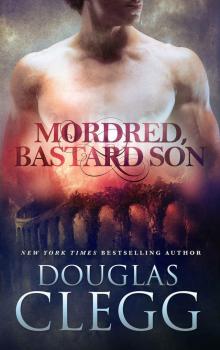 Mordred, Bastard Son
Mordred, Bastard Son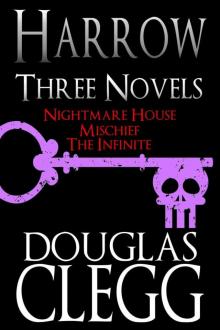 Harrow: Three Novels (Nightmare House, Mischief, The Infinite)
Harrow: Three Novels (Nightmare House, Mischief, The Infinite)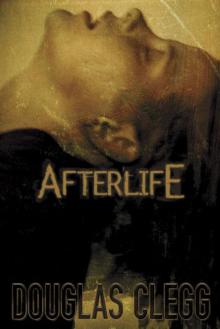 Afterlife
Afterlife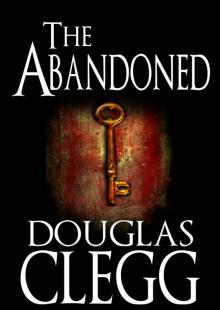 The Abandoned - A Horror Novel (Thriller, Supernatural), #4 of Harrow (The Harrow Haunting Series)
The Abandoned - A Horror Novel (Thriller, Supernatural), #4 of Harrow (The Harrow Haunting Series)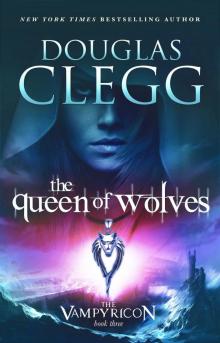 The Queen of Wolves
The Queen of Wolves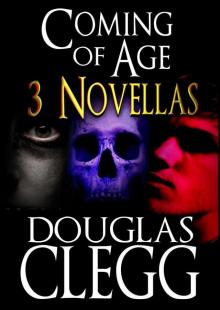 Coming of Age: Three Novellas (Dark Suspense, Gothic Thriller, Supernatural Horror)
Coming of Age: Three Novellas (Dark Suspense, Gothic Thriller, Supernatural Horror)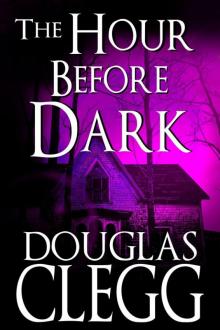 The Hour Before Dark
The Hour Before Dark Isis
Isis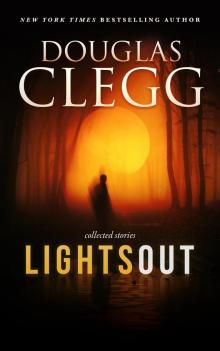 Lights Out
Lights Out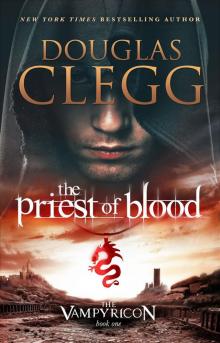 The Priest of Blood
The Priest of Blood Criminally Insane: The Series (Bad Karma, Red Angel, Night Cage Omnibus) (The Criminally Insane Series)
Criminally Insane: The Series (Bad Karma, Red Angel, Night Cage Omnibus) (The Criminally Insane Series) Halloween Candy
Halloween Candy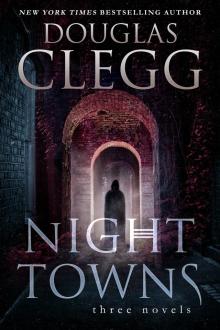 Nights Towns: Three Novels, a Box Set
Nights Towns: Three Novels, a Box Set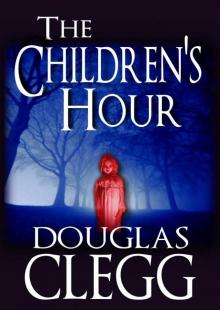 The Children's Hour - A Novel of Horror (Vampires, Supernatural Thriller)
The Children's Hour - A Novel of Horror (Vampires, Supernatural Thriller)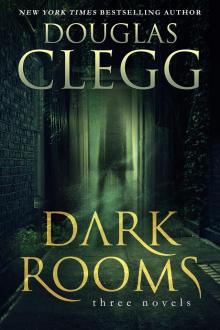 Dark Rooms: Three Novels
Dark Rooms: Three Novels![[Criminally Insane 01.0] Bad Karma Read online](http://i1.bookreadfree.com/i2/04/10/criminally_insane_01_0_bad_karma_preview.jpg) [Criminally Insane 01.0] Bad Karma
[Criminally Insane 01.0] Bad Karma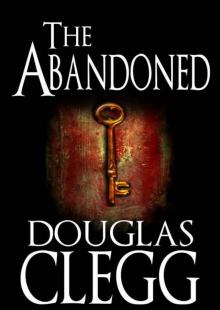 The Abandoned - A Horror Novel (Horror, Thriller, Supernatural) (The Harrow Haunting Series)
The Abandoned - A Horror Novel (Horror, Thriller, Supernatural) (The Harrow Haunting Series)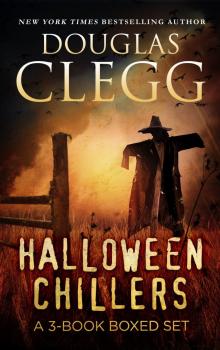 Halloween Chillers: A Box Set of Three Books of Horror & Suspense
Halloween Chillers: A Box Set of Three Books of Horror & Suspense